Big Brother is already here: Chinese residents will be evaluated by social rating
Categories: Asia | Society | Technology
By Pictolic https://pictolic.com/article/big-brother-is-already-here-chinese-residents-will-be-evaluated-by-social-rating.htmlCompanies like Google and Amazon have been collecting your data for commercial purposes for a long time. But such data makes up a virtual profile, on the basis of which in the future everyone will be given an "assessment". Many banks, for example, instead of a standard credit history, the first thing they do is check your Facebook account in search of characteristics that will help them determine your solvency.
In China, the system of collecting user data increasingly resembles a dystopia from the "Black Mirror" series. For example, it depends on your social rating in the country whether you will be given preference on a dating site or even a place in a hotel. Forgot to pay a parking fine in the wrong place two years ago? Be kind enough to add a $50 deposit to the car rental in the future. Are there many poor students as friends? Perhaps a hotel away from the city center is more suitable for you.
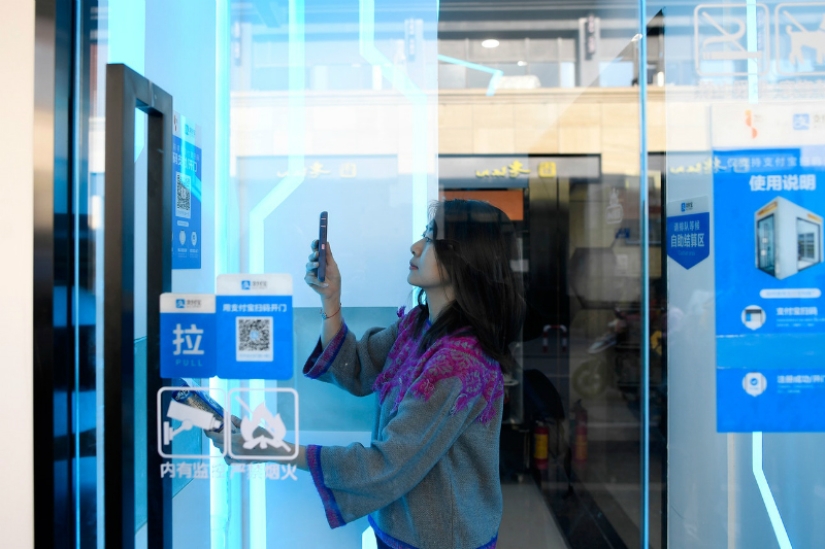 Source: Wired
Source: Wired
In 2010, Suining became one of the first cities in China to introduce a social rating model. Local residents were assessed according to a number of criteria, including the level of education, behavior on social networks and compliance with traffic rules. Each resident started his credit history with 1000 points — this number then increased or decreased depending on his actions. 50 points were awarded for helping elderly family members, 10 points for helping the poor. If you are caught drunk driving or giving a bribe to an official, you lose 50 points.
After all the calculations were made on the basis of the points scored, the citizens were divided into four classes: A, B, C and D — in fact, the equivalent of the assessment of academic performance from 5 to 2 used in Russian schools. Those who earned a "five" enjoyed priority when applying for a job or higher education institution. On the contrary, dual citizens could easily be denied a loan or a driver's license and even restrict access to certain types of social services.
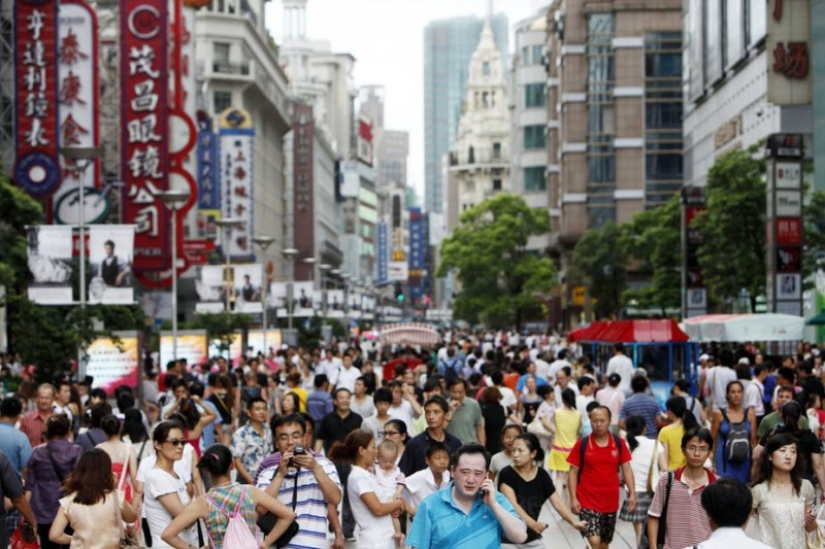
Since then, many Chinese cities have already managed to test their own versions of this model. Over time, all city systems will be integrated into a single national social rating network. The Chinese authorities have already attracted one of the technology giants, Baidu, which will have to develop a corresponding database by 2020.
The Chinese communist leadership was initially wary of the Internet, which is gradually penetrating into all homes and mobile phones, because it can serve as a platform for citizens to express political dissent or a place for self—organization of opposition forces. However, over time — and with the light hand of technology giants like Baidu, Alibaba and Tencent — the government realized how useful digital technologies can be in collecting and using information. After all, with the help of smart data management, control over citizens can be both more comprehensive and less obvious — unlike aggressive harassment or desperate censorship.
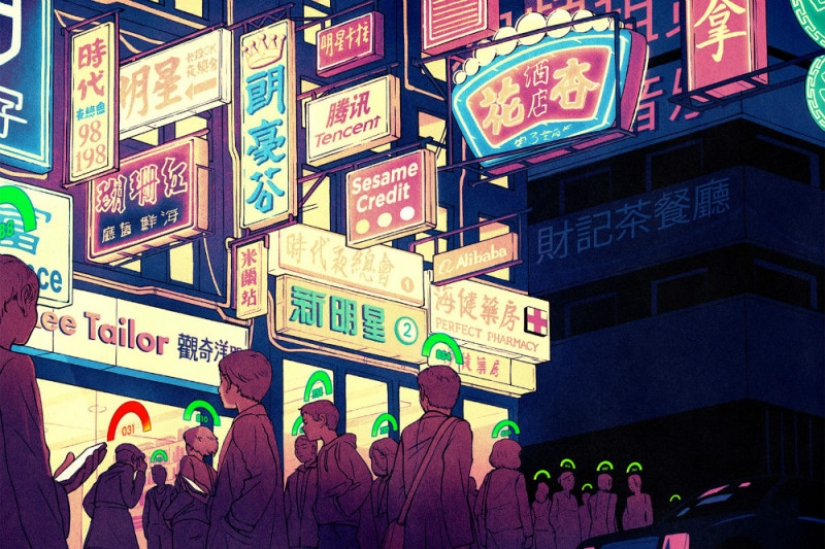
It is not difficult to get into the digital networks of applications that will then use your data — after all, by subscribing to their services, you will most likely save a lot of time and make your life easier. To get an Alipay ID, for example, you only need a phone number and a scan of your passport — and after registering, you can forget about your wallet. Through the app, you can order food from a restaurant you like, pay for parking or take out insurance, make an appointment with a doctor to bypass queues and even interact with friends on a social network inside the app.
You can even pay utility bills and the Internet, as well as use "apps within apps" — when you open Alipay or WeChat, you see in front of you a screen full of icons with all sorts of options and reminiscent of the home screen on a smartphone. It's like having cards, an online bank, "Yandex.Taxi", "Ozone", Qiwi and Delivery Club in one application. In fact, this set is a whole ecosystem of services that slightly less than fully reflects the daily activity of users — and stores all this data for processing.
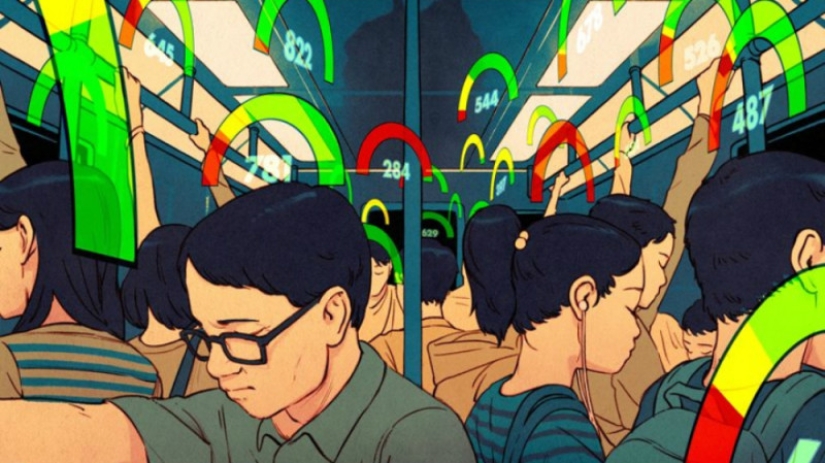
One of the most widespread credit rating systems in China, Sesame Credit, became part of the ecosystem of the Alipay application already in 2015. The program tracks your behavior in the application and based on it assigns you a rating from 350 to 950 points, rewarding users with a good rating and punishing the "unreliable". The exact method of operation of the algorithms remains a secret, but in general there are five categories of user descriptions. For example, the category "Connections" takes into account similar ratings of your friends on the social network of the application, and "Characteristics" takes into account what kind of car you drive, who your employer is and what school you attended.
In the "Behavior" category, the system tracks your debt payment history and the types of goods and services you purchase— in general, all the subtleties of your consumer life — in order to determine the "reliability" of your credit history. Thus, behavior that differs in timely payment of utility bills or purchase of household goods most likely speaks of a reliable consumer who can safely be offered a good installment loan. Another thing is a user who spends hours on end in video games or spends money in an online casino.
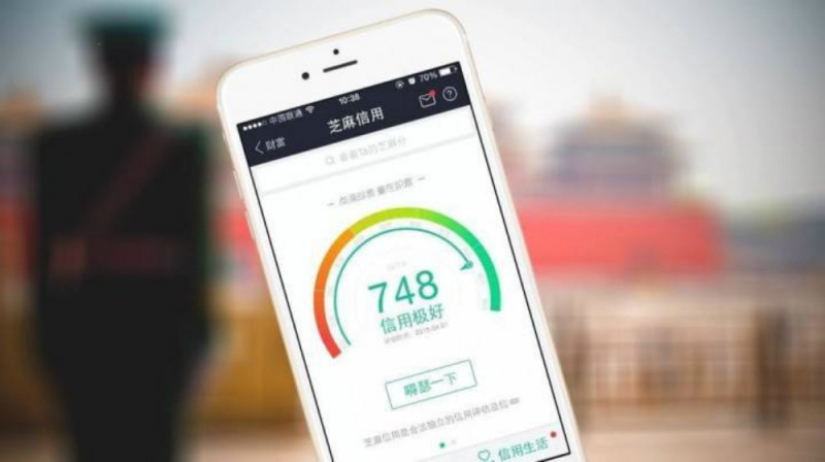
Good behavior — rating above 650 — allows you to rent a car without a deposit. If you hit the car and refuse to pay the fine, the information about it will be sent back to the system, reducing your overall score. Users with a rating above 750 were even allowed to skip a security check at Beijing Airport at one time.
The National Council of China hinted that with the introduction of the national social rating system, citizens suspected of spreading "slander" on the web or otherwise caught in "unreliability" can count on the deterioration of the quality of social services from the state — which, among other things, include medicine and education.
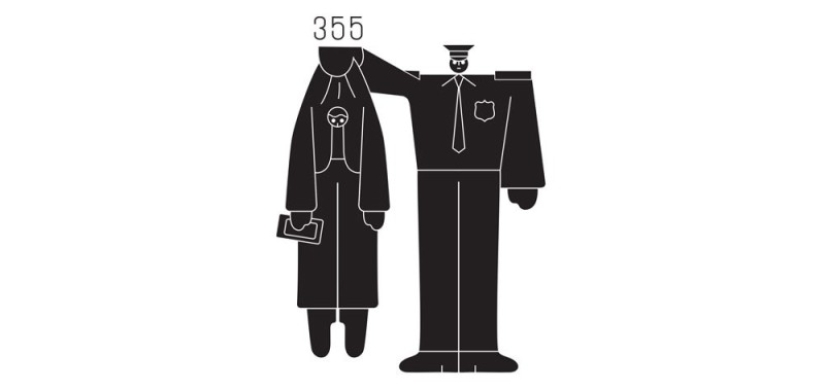
Many express outrage about such a large-scale social experiment, because such a system can significantly restrict the rights of a person whose reputation was stained with a fine or offense years earlier. There are cases when people who mistakenly had a court sentence hanging over them for a fine that they paid many years ago could not move around the country and make purchases in a certain category of goods, not to mention issuing a loan, obtaining business licenses and other similar restrictions. Representatives of the state assure that the system will help to optimize the rule of law and social interactions of citizens.
Lucy Pen, Director of Ant Financial
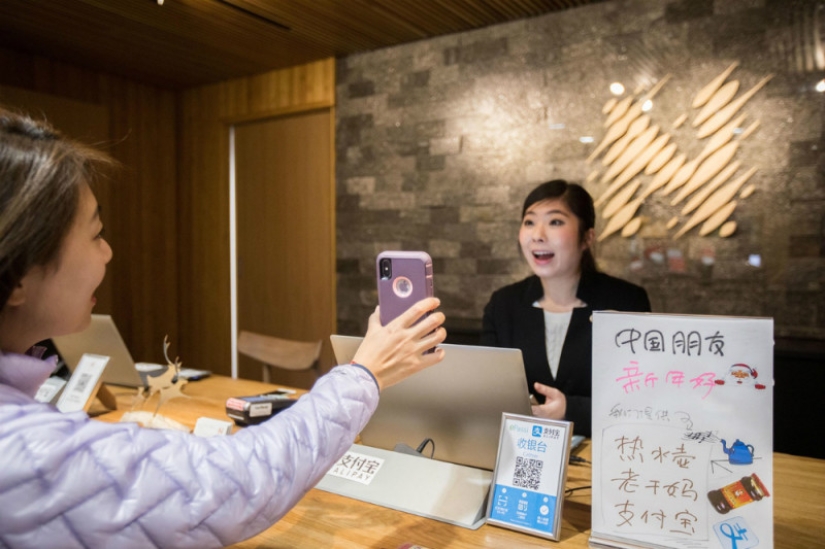
Keywords: State | China | Credit | Social project | Utopia
Post News ArticleRecent articles

It's high time to admit that this whole hipster idea has gone too far. The concept has become so popular that even restaurants have ...

There is a perception that people only use 10% of their brain potential. But the heroes of our review, apparently, found a way to ...
Related articles

We are accustomed to the fact that on the packaging of tea, write "loose" and rarely think about what the word means. Meanwhile, ...

Human intervention in the affairs of nature is extremely rarely successful. Especially a lot of trouble was brought to the ...

The sea is still, you are a woman or a man, if you can hold in their hands an army of 70,000. Chinese Chin si could — she started ...

New Year's is a time to surprise and delight loved ones not only with gifts but also with a unique presentation of the holiday ...